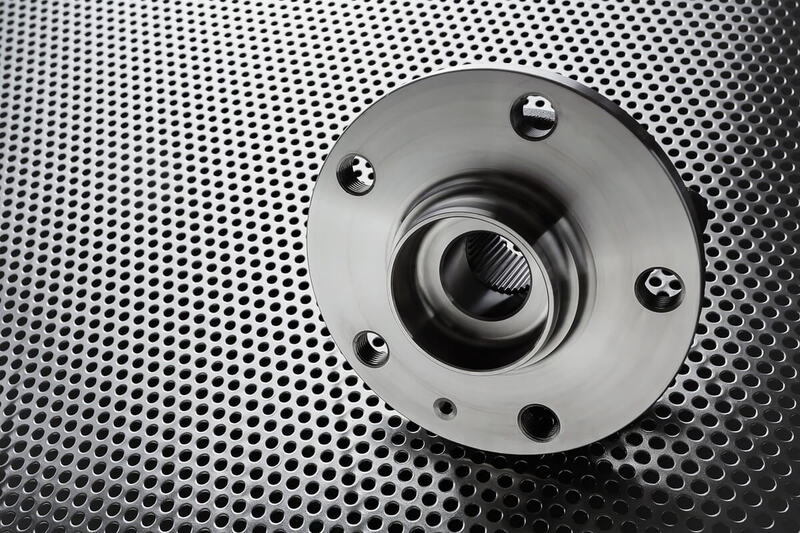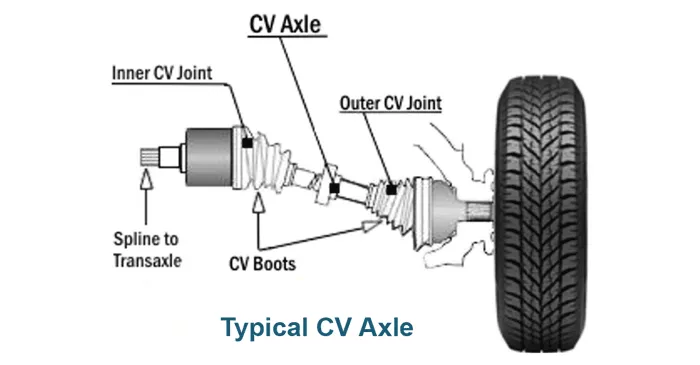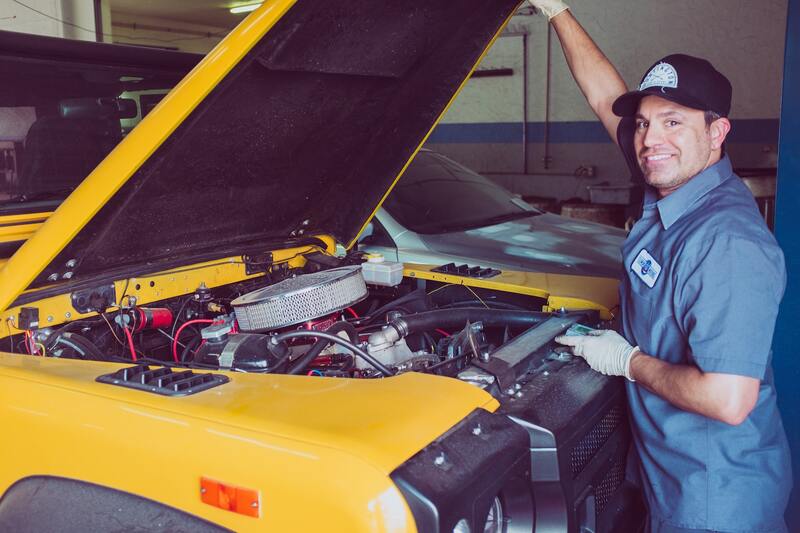Have you ever driven your car and heard a strange noise that sounds like a humming noise? If so, then you are not alone. You can listen to the sound produced as the car’s engine changes speeds. It can make your pleasant journey an unpleasant one.
This article details the humming noise in cars getting louder with speed. It also provides potential solutions to stop this sound and keep your vehicle running without hiccups.
Why Does a Car Make Humming Noise When Accelerating?
Sound familiar to you? There are several reasons for the humming noise while driving from the muffler. The following will help you know the checkpoints of the car and how to fix them.
1. Wheel Alignment
Under this condition, the wheels do not point in the same direction as the vehicle moves forward. The wheels that are misaligned will create more friction with the road surface. The car making a humming noise when accelerating is hearable.
How to Fix: A professional mechanic will use specialized equipment to measure the alignment of the wheels and make adjustments as necessary to bring them back into proper alignment. It can include adjusting the camber, caster, and toe of the wheels.
2. Worn Or Damaged Bearings

Worn or damaged bearings do not support and rotate the wheels. It causes the wheels to vibrate and the car making a whining noise. Worn or damaged bearings create excess friction, which can generate heat and cause further damage to other components.
How to Fix: A professional mechanic will remove the affected component, such as a wheel or drive shaft, and replace the bearing with a new one.
3. Bad Ball Joints
Ball joints are connected to the steering and suspension components. Worn or damaged ball joints cause the suspension to become misaligned. It causes the wheels to vibrate and create a roaring noise when driving as the vehicle accelerates.
How to fix: A professional mechanic will remove the affected component, such as the control arm or steering knuckle, and replace the ball joint with a new one.
3. Cracked Serpentine Belt
A cracked serpentine belt can is responsible for driving various components such as the alternator, power steering pump, air conditioning compressor, and others. A cracked belt can cause vibrations and humming noise.
How to fix: You may have to remove the old belt and install a new one. The mechanic will inspect the pulleys, tensioners, and idlers that the belt runs on to ensure that they are in good condition and recommend actions accordingly.
4. Scalloping Or Tire Cupping
Scalloping or tire cupping is the uneven wear on the tire treads. It can make a humming noise when accelerating at low speed because the tires are not making contact with the road surface they are supposed to and instead vibrate.
How to fix: To fix scalloping or tire cupping, replace the tires.
5. Faulty CV Joint

A faulty CV joint can make a humming noise in a car when accelerating because it is responsible for transmitting power from the transmission to the drive wheels at a constant velocity. A worn or damaged CV joint can create vibrations and noise and affect vehicle handling.
How to fix: A professional mechanic may remove the affected component, such as the drive shaft or axle, and replace the CV joint with a new one.
6. Lack of or Incorrect Engine Oil
There is a connection between a lack of or incorrect engine oil type and a car making a humming noise at 50 mph. It is because oil lubricates the various moving engine parts and helps to keep them cool. Without enough oil or the correct type of oil, the moving parts can start to rub against each other, creating friction and generating heat. It causes a humming noise and damage to the engine.
How to fix: To fix a lack of or incorrect engine oil, the oil level or type needs to be checked and corrected as recommended by the vehicle manufacturer.
7. Tires With Aggressive Tread Designs
Tread patterns are designed to improve traction on certain surface types but can also create more road noise, especially at higher speeds. The tread design or tire’s construction can cause humming noise while driving.
How to fix: Consider replacing the tires with a less aggressive tread design. It may reduce road noise and improve the overall ride comfort of the vehicle. Also, ensure that the tires are properly inflated and balanced, which can also affect the noise level.
8. Issues With The Engine

The engine is the power source of the vehicle, and if there are problems with it, such as includes worn or damaged bearings, faulty valves, worn or damaged timing components, worn or damaged piston rings, or low compression in one or more cylinders, one can hear the car making ticking and whining.
How to fix: A professional mechanic will diagnose the problem and recommend the appropriate repair for the bearings, valves, timing components, piston rings, and compression.
9. Transmission Problems
Wheels get transmission power from the engine. Some possible transmission problems that can cause a roaring noise when driving include worn or damaged gears, worn or damaged bearings, or issues with the transmission fluid.
How to fix: Check the gears, bearings, and fluid level. You may have to replace or repair any worn or damaged part at a garage.
10. Incorrect Cylinder Compression
If the compression in one or more cylinders is too low, it can affect the engine’s performance, creating vibration and noise and reducing the vehicle’s power.
How to fix: A professional mechanic will diagnose the problem and run a compression test on the engine to determine which cylinders have low compression. He will inspect or test various engine components, such as valves, piston rings, and gaskets and recommend the appropriate repair.
Conclusion
It’s vital to note that hire a professional mechanic who can thoroughly diagnose your car. They are the best to fix the issues and recommend the appropriate fix to curtail the humming noise while driving. Regular servicing of the vehicle will help to reduce the frequent visit to a professional mechanic. Observe good driving habits, and you are good to go.
FAQS
1. Can low transmission fluid cause humming noise?
Yes, low transmission fluid can cause a humming noise in a car when accelerating. The transmission relies on the proper fluid level to lubricate and cool its internal components; when the fluid level is low, the moving parts can start to rub against each other and create friction, resulting in a humming noise.
2. Why does my car sound louder when I go faster?
When a car sounds louder when going faster, the vehicle’s shape and the wind resistance create the sound. As the vehicle’s speed increases, the wind’s resistance increases, making more noise. Other factors like a worn-out muffler, worn-out tires, and damaged or lose parts in the exhaust system are the causes for louder sound.
3. Why does my car make a low humming noise?
The causes of low humming noise in a car are worn or damaged bearings, issues with the transmission, wheel alignment, inadequate or incorrect engine oil, tires with aggressive tread designs, or engine issues.
